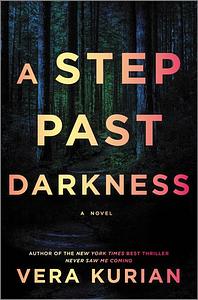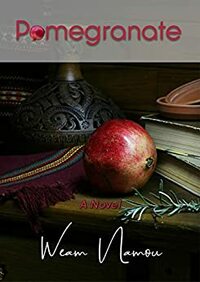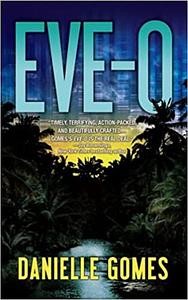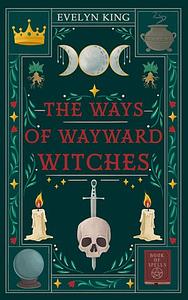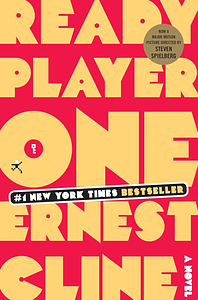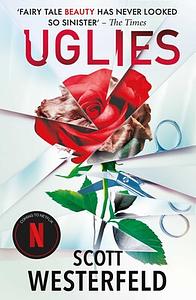Take a photo of a barcode or cover
ebonwilde's Reviews (901)
Very intriguing synopsis, and I did like the plot, but it was extremely slow paced. I can't say nothing happened because so much did, but certainly not enough to fill the almost 500 pages of this book. It dragged on and on, and I couldn't wait for it to end.
I requested this because I loved Never Saw Me Coming, and unfortunately, I don't think it met my expectations. I'm going to admit I mainly liked NSMC due to Chloe and Charles, not plot or writing, and ASPD doesn't have characters with the same star power or even any that stood out enough to look past the, well, mediocrity of everything else. While the characters are not complete stereotypes, I found them to be extremely rigid in their roles in a way that seemed highly unrealistic.
I also had issues with the prose and the plot. The writing itself is very clinical; I could connect to very few of the emotional scenes. You would think this would make the book straightforward and easy to read, but that's not true either. The alternative timeline on its own wouldn't be confusing, but when added to a cast of six different povs, I had to reread several parts multiple times to understand what was happening. Another thing I didn't like was how social and political issues were described or brought up in, well, social media/tiktok terms. For example, one phrase that jumps out to me is "shamed for their sexuality" when talking about women being sexually abused and raped by priests. It just cheapens the subject.
My one problem with the otherwise okay plot is that they find out something in the 1995 timeline which should have cut down at least half of the 2015 timeline (which was just "who is he" and "how is he alive"). You know how he's still alive. This revelation at around 70% (?) rendered at least the first 1/4 of the book entirely unnecessary, and I really think one of these things should be cut.
I really am sad I didn't enjoy this like I thought I would.
Thank you to Netgalley for an early copy.
I requested this because I loved Never Saw Me Coming, and unfortunately, I don't think it met my expectations. I'm going to admit I mainly liked NSMC due to Chloe and Charles, not plot or writing, and ASPD doesn't have characters with the same star power or even any that stood out enough to look past the, well, mediocrity of everything else. While the characters are not complete stereotypes, I found them to be extremely rigid in their roles in a way that seemed highly unrealistic.
I also had issues with the prose and the plot. The writing itself is very clinical; I could connect to very few of the emotional scenes. You would think this would make the book straightforward and easy to read, but that's not true either. The alternative timeline on its own wouldn't be confusing, but when added to a cast of six different povs, I had to reread several parts multiple times to understand what was happening. Another thing I didn't like was how social and political issues were described or brought up in, well, social media/tiktok terms. For example, one phrase that jumps out to me is "shamed for their sexuality" when talking about women being sexually abused and raped by priests. It just cheapens the subject.
My one problem with the otherwise okay plot is that they find out something in the 1995 timeline which should have cut down at least half of the 2015 timeline (which was just "who is he" and "how is he alive"). You know how he's still alive. This revelation at around 70% (?) rendered at least the first 1/4 of the book entirely unnecessary, and I really think one of these things should be cut.
I really am sad I didn't enjoy this like I thought I would.
Thank you to Netgalley for an early copy.
Breaking the Cycle of Silence: Raising Awareness and Taking Action to Prevent Childhood Sexual Abuse
[copy from booktasters in exchange for review]
without getting too much into it, this reads like something a high school student would write. i'm fairly certain i have a memoir assignment lying around somewhere with this exact writing style, word for word at some points.
everything about this book is extremely aggravating to read, from the tone to the sentence structure and word choice. considering that this is a 150 page book, there was no reason for me to trudge through this for four days.
however, considering the subject material, this might be a tad insensitive. so. here are some good things: it's emotionally gripping (for the first 10 pages or so before the most awkward writing in the world distracts you, and then afterwards solely because of the topic). it's informative (mostly in regards to understanding pearse's state of mind, otherwise it's basic information you can find on any anti sex crime website).
barely deserves 2.5 stars, but i'm adding +0.5. because. you know.
without getting too much into it, this reads like something a high school student would write. i'm fairly certain i have a memoir assignment lying around somewhere with this exact writing style, word for word at some points.
everything about this book is extremely aggravating to read, from the tone to the sentence structure and word choice. considering that this is a 150 page book, there was no reason for me to trudge through this for four days.
however, considering the subject material, this might be a tad insensitive. so. here are some good things: it's emotionally gripping (for the first 10 pages or so before the most awkward writing in the world distracts you, and then afterwards solely because of the topic). it's informative (mostly in regards to understanding pearse's state of mind, otherwise it's basic information you can find on any anti sex crime website).
barely deserves 2.5 stars, but i'm adding +0.5. because. you know.
i really wanted to like this book, i did, but the writing was too absurd. for example:
"Well, I’m sorry massa!” Niran said, suddenly with a Southern accent and a timid voice, her fingers trembling as she pretended to be frightened of Mary. “I ain’t mean to anga ya! I was simply replyin’ to you comment! I fogot you was white! Don’t whip me massa!”
???? what
and then we have:
"Wearing headphones over her hijab and a scarf around her hips, Niran belly danced as she swept the floor. The slight jiggle of her curves added to the meaning of this mundane work, and it was also a time for introspection and a chance to embrace her natural, feminine, hourglass figure. She shook her buttocks and breasts and twisted and rotated her hips in a most alluring manner. She used the broom as her dancing partner and did sensuous lift and drop moves with her hips and shoulders, even spinning and swinging the broom and throwing her leg over it."
aside from the derangedness of ass shaking in a hijab, this reads like that "male authors writing female characters" meme—if you told me this was satire of "she breasted boobily down the stairs" i'd believe you. and who wears a hijab in their own house??
even not including the nonsensical scenes above, i couldn't stand the writing style. it wasn't exactly "timmy picked up the ball. timmy threw the ball. timmy was a strong boy" but is was pretty damn close. the introductory paragraphs for mary was whole lot of "she's so nice! she's so charitable! she helps everyone do food stamps!" stop telling us what she is and show us??
also, this might be a bit petty of me, but i hate songs/poetry in books. now, i don't know anything about poetry, so i can't tell you if niran's poems were objectively good or not. i can tell you that to me, they seem very similar to corny tiktok "i am divine feminine" rupi kaur garbage, and most of them irritated the hell out of me.
in terms of plot point, i hated that the trumpian christian was presented as "normal" with views that we're supposed to take seriously, or at least with equal value as the muslim perspective. that niran continues to be mary's friend despite her blatant racist, trumpian nature, and that mary faces no consequences for her views, is just so insane to me.
(i'm never going to take criticism of islamic misogyny from a christian seriously, and if the author wanted to go that route, she should have made mary an atheist)
onto the reason i'm giving this two stars and not zero: niran's storyline, which i truly love and empathize with, pomegranate's saving grace. perhaps this is oversharing, but i've been forced to wear the hijab since i was five, and the burqa since i was eleven. i utterly despise the hijab and everything associated with it, having been forced into "modesty" at the threat of homelessness while my male family members get to walk around shirtless in public. every time i put on a hijab, something inside me dies, so niran questioning the patriarchal structure it represents—from the perspective of a muslim woman, not a christian fascist—means so, so much to me. i was delighted when she took off the hijab at the end of the book.
this is one of the only things i've read where the hijab is discussed through a feminist, antipatriarchal lens, instead of the same old racialized criticism or the even worse "hijab is a choice!" liberal choice feminist bullshit. hijab isn't a choice if you've been groomed into as a child, if you're constantly told you'll go to hell if you don't wear it, if in most muslim countries and muslim diaspora communities you can and will be raped and killed if you don't wear it. even it was a choice for some women, participating in such a ritual upholds patriarchal double standards of modesty for which other women are killed, so i love, love, love niran for taking it off. i'm so seriously proud of her, and i wish we had more characters like her. i wish someone else with a ...different style of writing had authored this book and given niran the story she deserves.
of course, the feminist lens of the book falls apart five minutes later when niran is going on about how much she loves makeup, another patriarchal concept forced onto women. i understand how niran can find it freeing after being forced to hide herself her entire life, but I don't like the idea that hypersexuality/makeup/beauty is somehow more liberating for women than modesty/hijab/tradwifism, when they are both sides of the same coin. but that isn't the point of this book, so i digress.
2.5 stars. thank you to booktasters for the book.
"Well, I’m sorry massa!” Niran said, suddenly with a Southern accent and a timid voice, her fingers trembling as she pretended to be frightened of Mary. “I ain’t mean to anga ya! I was simply replyin’ to you comment! I fogot you was white! Don’t whip me massa!”
???? what
and then we have:
"Wearing headphones over her hijab and a scarf around her hips, Niran belly danced as she swept the floor. The slight jiggle of her curves added to the meaning of this mundane work, and it was also a time for introspection and a chance to embrace her natural, feminine, hourglass figure. She shook her buttocks and breasts and twisted and rotated her hips in a most alluring manner. She used the broom as her dancing partner and did sensuous lift and drop moves with her hips and shoulders, even spinning and swinging the broom and throwing her leg over it."
aside from the derangedness of ass shaking in a hijab, this reads like that "male authors writing female characters" meme—if you told me this was satire of "she breasted boobily down the stairs" i'd believe you. and who wears a hijab in their own house??
even not including the nonsensical scenes above, i couldn't stand the writing style. it wasn't exactly "timmy picked up the ball. timmy threw the ball. timmy was a strong boy" but is was pretty damn close. the introductory paragraphs for mary was whole lot of "she's so nice! she's so charitable! she helps everyone do food stamps!" stop telling us what she is and show us??
also, this might be a bit petty of me, but i hate songs/poetry in books. now, i don't know anything about poetry, so i can't tell you if niran's poems were objectively good or not. i can tell you that to me, they seem very similar to corny tiktok "i am divine feminine" rupi kaur garbage, and most of them irritated the hell out of me.
in terms of plot point, i hated that the trumpian christian was presented as "normal" with views that we're supposed to take seriously, or at least with equal value as the muslim perspective. that niran continues to be mary's friend despite her blatant racist, trumpian nature, and that mary faces no consequences for her views, is just so insane to me.
(i'm never going to take criticism of islamic misogyny from a christian seriously, and if the author wanted to go that route, she should have made mary an atheist)
onto the reason i'm giving this two stars and not zero: niran's storyline, which i truly love and empathize with, pomegranate's saving grace. perhaps this is oversharing, but i've been forced to wear the hijab since i was five, and the burqa since i was eleven. i utterly despise the hijab and everything associated with it, having been forced into "modesty" at the threat of homelessness while my male family members get to walk around shirtless in public. every time i put on a hijab, something inside me dies, so niran questioning the patriarchal structure it represents—from the perspective of a muslim woman, not a christian fascist—means so, so much to me. i was delighted when she took off the hijab at the end of the book.
this is one of the only things i've read where the hijab is discussed through a feminist, antipatriarchal lens, instead of the same old racialized criticism or the even worse "hijab is a choice!" liberal choice feminist bullshit. hijab isn't a choice if you've been groomed into as a child, if you're constantly told you'll go to hell if you don't wear it, if in most muslim countries and muslim diaspora communities you can and will be raped and killed if you don't wear it. even it was a choice for some women, participating in such a ritual upholds patriarchal double standards of modesty for which other women are killed, so i love, love, love niran for taking it off. i'm so seriously proud of her, and i wish we had more characters like her. i wish someone else with a ...different style of writing had authored this book and given niran the story she deserves.
of course, the feminist lens of the book falls apart five minutes later when niran is going on about how much she loves makeup, another patriarchal concept forced onto women. i understand how niran can find it freeing after being forced to hide herself her entire life, but I don't like the idea that hypersexuality/makeup/beauty is somehow more liberating for women than modesty/hijab/tradwifism, when they are both sides of the same coin. but that isn't the point of this book, so i digress.
2.5 stars. thank you to booktasters for the book.
i can't really say anything bad about this book in terms of writing style, except perhaps the non-chronological structuring was a bit confusing. the plot however? i have a lot to say about that. i feel like if you are interested in comedy, laughs last could be nice read. however, i am what they call a "civilian," and i just... don't care. i think partly this is my fault for seeking out this book when i am so indifferent to its main topic, but it is also the author's job to pull a reader in, regardless of how they feel about the subject, is it not?
i just think this book was overdramatic about a lot of things, maybe because i don't care about comedy. half the time i was reading, i was wondering if anything was as remotely as deep as damon and poppa made it out to be. i can somewhat understand them when comedy becomes damon's livelihood, but their dialogue and interactions in damon's childhood made me ask why poppa wasn't in a straightjacket, which i don't think was brody's intention.
this scene especially was so???
"Without looking up from the food, Damon said, “You know what’s an oxymoron? Jumbo shrimp. Al- so, Military intelligence.” Poppa laughed aloud. Mom laughed a hissing little laugh. Dad looked up from the puzzle sharply and said, “That’s not yours.” “How do you know?” Damon asked. “Simon,” Poppa scolded. “You don’t accuse someone of—” but Dad cut him off. “You’re nine, Damon. Do you know what ‘oxymo- ron’ means?” “It means—um—” Damon squirmed, trying to find the meaning that would make sense of the laugh he had heard the joke get. Before he could get there, Poppa stepped in. He had never heard his grandfather sound so worried, so angry. “Is that true, Damon? Where did you get that joke?”
truly the strangest family dynamic i've ever read. a nine year old making a joke and everyone going "you stole that!! how dare you??" like who cares. perhaps i take things a bit too literally.
and when we find out that the insane oh-so-significant thing that damon did at poppa's funeral was... gluing a fake nose on him?? what. this was being pushed as a huge thing, something violently evil, or an award winning emmy skit, depending on which character you asked. apparently damon's father and brother never forgave him. over gluing a fake nose on a corpse. all this waffling over a fake nose, like i genuinely don't get it. it comes across as prank by an 8 year old—damon was supposedly a grown man at the time, but who knows, really—neither funny, nor particularly evil boundary pushing. again, my reaction was who cares? this was such an anticlimactic reveal; i was actually excited to know what he did, and he did this. like okay, i guess. i'm sorry, i just hated poppa's character—i wanted damon to actually do something horrific to him and turn it into a joke.
i think i just can't care about male characters unless reading from a female pov, or in scifi/fantasy, and unfortunately, this happens to be contemporary literary fiction. i loved the cynthia character though, and her relationship with damon was nicely written.
2 stars. thank you to booktasters for sending me a copy.
i just think this book was overdramatic about a lot of things, maybe because i don't care about comedy. half the time i was reading, i was wondering if anything was as remotely as deep as damon and poppa made it out to be. i can somewhat understand them when comedy becomes damon's livelihood, but their dialogue and interactions in damon's childhood made me ask why poppa wasn't in a straightjacket, which i don't think was brody's intention.
this scene especially was so???
"Without looking up from the food, Damon said, “You know what’s an oxymoron? Jumbo shrimp. Al- so, Military intelligence.” Poppa laughed aloud. Mom laughed a hissing little laugh. Dad looked up from the puzzle sharply and said, “That’s not yours.” “How do you know?” Damon asked. “Simon,” Poppa scolded. “You don’t accuse someone of—” but Dad cut him off. “You’re nine, Damon. Do you know what ‘oxymo- ron’ means?” “It means—um—” Damon squirmed, trying to find the meaning that would make sense of the laugh he had heard the joke get. Before he could get there, Poppa stepped in. He had never heard his grandfather sound so worried, so angry. “Is that true, Damon? Where did you get that joke?”
truly the strangest family dynamic i've ever read. a nine year old making a joke and everyone going "you stole that!! how dare you??" like who cares. perhaps i take things a bit too literally.
and when we find out that the insane oh-so-significant thing that damon did at poppa's funeral was... gluing a fake nose on him?? what. this was being pushed as a huge thing, something violently evil, or an award winning emmy skit, depending on which character you asked. apparently damon's father and brother never forgave him. over gluing a fake nose on a corpse. all this waffling over a fake nose, like i genuinely don't get it. it comes across as prank by an 8 year old—damon was supposedly a grown man at the time, but who knows, really—neither funny, nor particularly evil boundary pushing. again, my reaction was who cares? this was such an anticlimactic reveal; i was actually excited to know what he did, and he did this. like okay, i guess. i'm sorry, i just hated poppa's character—i wanted damon to actually do something horrific to him and turn it into a joke.
i think i just can't care about male characters unless reading from a female pov, or in scifi/fantasy, and unfortunately, this happens to be contemporary literary fiction. i loved the cynthia character though, and her relationship with damon was nicely written.
2 stars. thank you to booktasters for sending me a copy.
i'm so torn about this. on one hand, it has a genuinely intriguing plot. it takes place in the near future, in a dystopia where the world is riddled with pandemics and humans have stopped evolving (in general, but this focuses on evolution of immunity against illnesses). due to evolution halting, humans will soon become extinct, and you have your average government and hitlerite capitalist goons taking advantage of this to create their perfect eugenicist world. it's a very interesting, original premise; i'm fairly certain i've never read anything like it before. it's action packed and fast paced, and it's set up in a way i'd usually like.
it's quite descriptive and informative. at times the characters unnaturally info dump for world building, but since i was actually invested in the information, i wouldn't say that it was a bad thing.
my one complaint has to do with the characters. every single character was vehemently hateable. now obviously, that's the point if it's the "villain," so let's start with trent. he's the obvious villain who wants to enslave and experiment on uninformed indigenous individuals for his eugenicist future. he, and holton and sabara are in-your-face villainous in the most cartoonish way; obviously they are meant to be disliked. they have no character outside of this, which is a bit irritating, but moving on. what ticks me off here—and this has nothing to do with the author or the book—is that at least two separate reviews claim that he gets a redemption arc [and becomes some form of likable]. he does not. he dies a hitlerite, giving a spiel about how ethnic cleansing will actually be good for humanity. i genuinely don't understand how anyone is sympathizing with this creature. his insidious nature wasn't even a big reveal; he was abusive and controlling from his first appearance. apparently he "loves" gabrielle but i don't see it. i don't know if the author intended this to be a morally grey sort of story, but for me, there's a pretty clear cut good and evil present.
let's talk about gabby. i liked her in the beginning; she seemed educated, competent, and self-assured. and then trent came into the picture. she believes him so unconditionally, it's insane. she only changes her mind due to some witch doctor ayahuasca dream about her parents, which is even more insane. aren't you a doctor? a scientist? even after finding out about what trent's actual experiment is, she continues making excuses for him. she tries preventing his death, all while he's telling her killing the poor is the way to go. honestly, writing it out now, it's quite funny how ridiculous she is. i think her relationship to trent is quite realistic for her character actually. she's been shown to trust him unconditionally, regardless of how condescending he treats her, especially with the whole paulo thing. but even so, i simply can't take this seriously.
if a character is made to be purposefully unlikable, you can tell, and even enjoy the story, depending on author skill. i don't think that's the case here, because it definitely takes away from how good the book could have been. gabby's parts are as character-focused as they are plot-focused, perhaps even more so. making her so unlikable in an absurdly boy-obsessed way (this is a grown woman) just makes the whole thing uncomfortable to read. maybe this is married woman thing i will simply never understand. the premise was fascinating; i just wish it had been handled better.
it's quite descriptive and informative. at times the characters unnaturally info dump for world building, but since i was actually invested in the information, i wouldn't say that it was a bad thing.
my one complaint has to do with the characters. every single character was vehemently hateable. now obviously, that's the point if it's the "villain," so let's start with trent. he's the obvious villain who wants to enslave and experiment on uninformed indigenous individuals for his eugenicist future. he, and holton and sabara are in-your-face villainous in the most cartoonish way; obviously they are meant to be disliked. they have no character outside of this, which is a bit irritating, but moving on. what ticks me off here—and this has nothing to do with the author or the book—is that at least two separate reviews claim that he gets a redemption arc [and becomes some form of likable]. he does not. he dies a hitlerite, giving a spiel about how ethnic cleansing will actually be good for humanity. i genuinely don't understand how anyone is sympathizing with this creature. his insidious nature wasn't even a big reveal; he was abusive and controlling from his first appearance. apparently he "loves" gabrielle but i don't see it. i don't know if the author intended this to be a morally grey sort of story, but for me, there's a pretty clear cut good and evil present.
let's talk about gabby. i liked her in the beginning; she seemed educated, competent, and self-assured. and then trent came into the picture. she believes him so unconditionally, it's insane. she only changes her mind due to some witch doctor ayahuasca dream about her parents, which is even more insane. aren't you a doctor? a scientist? even after finding out about what trent's actual experiment is, she continues making excuses for him. she tries preventing his death, all while he's telling her killing the poor is the way to go. honestly, writing it out now, it's quite funny how ridiculous she is. i think her relationship to trent is quite realistic for her character actually. she's been shown to trust him unconditionally, regardless of how condescending he treats her, especially with the whole paulo thing. but even so, i simply can't take this seriously.
if a character is made to be purposefully unlikable, you can tell, and even enjoy the story, depending on author skill. i don't think that's the case here, because it definitely takes away from how good the book could have been. gabby's parts are as character-focused as they are plot-focused, perhaps even more so. making her so unlikable in an absurdly boy-obsessed way (this is a grown woman) just makes the whole thing uncomfortable to read. maybe this is married woman thing i will simply never understand. the premise was fascinating; i just wish it had been handled better.
I was so excited for this because a witchy fantasy mystery is right up my alley. Though that is what the blurb gives off, it is not what I got from the book.
I assumed this would be an adult fantasy because the protagonist is 21. However, It is very, very, very young adult. I'd recommend this to a 14 year old if it weren't for the explicit sex scenes. The protagonist is so incredibly juvenile; her thoughts are grating to read even though I am actually younger than she is meant to be. The back and forth with the love interest was awful—he fell in love, tried to kill her, fell in love, tried to kill her, fell in love again. Was two rounds of that not enough? The entire romance was very instalove, which is insane because they were going for an enemies to lovers storyline. They were enemies one day (or at least he hated her) and then in love the next—no development other than physical attraction on her end, and what he saw in her, I couldn't tell you to save my life.
The mystery aspect was underdeveloped and rushed—I understood the goal of what they were trying to find because they mentioned it explicitly several times, but exactly how they were going about this, I really couldn't tell you. Everything culminates in the last 20 pages or so, but there isn't enough excitement for the amount of buildup. I understand this is a series, but the cliffhanger was placed awkwardly, and I am not even sure the main plot of this installment was completed.
The worldbuilding was the most developed part of this book. I can recite to you exactly everything about the witch government, how it formed, witch powers, their relationship with vampires, etc etc. I don't like that it was very infodumpy towards the beginning, but that can be forgiven. What can't be forgiven is the atrocious amount of pop culture references. This is an urban fantasy, yes, but that doesn't make it any less annoying to hear about buffy the vampire slayer every two paragraphs.
Overall, 2.5 stars.
I received an advance review copy for free, and I am leaving this review voluntarily.
I assumed this would be an adult fantasy because the protagonist is 21. However, It is very, very, very young adult. I'd recommend this to a 14 year old if it weren't for the explicit sex scenes. The protagonist is so incredibly juvenile; her thoughts are grating to read even though I am actually younger than she is meant to be. The back and forth with the love interest was awful—he fell in love, tried to kill her, fell in love, tried to kill her, fell in love again. Was two rounds of that not enough? The entire romance was very instalove, which is insane because they were going for an enemies to lovers storyline. They were enemies one day (or at least he hated her) and then in love the next—no development other than physical attraction on her end, and what he saw in her, I couldn't tell you to save my life.
The mystery aspect was underdeveloped and rushed—I understood the goal of what they were trying to find because they mentioned it explicitly several times, but exactly how they were going about this, I really couldn't tell you. Everything culminates in the last 20 pages or so, but there isn't enough excitement for the amount of buildup. I understand this is a series, but the cliffhanger was placed awkwardly, and I am not even sure the main plot of this installment was completed.
The worldbuilding was the most developed part of this book. I can recite to you exactly everything about the witch government, how it formed, witch powers, their relationship with vampires, etc etc. I don't like that it was very infodumpy towards the beginning, but that can be forgiven. What can't be forgiven is the atrocious amount of pop culture references. This is an urban fantasy, yes, but that doesn't make it any less annoying to hear about buffy the vampire slayer every two paragraphs.
Overall, 2.5 stars.
I received an advance review copy for free, and I am leaving this review voluntarily.


